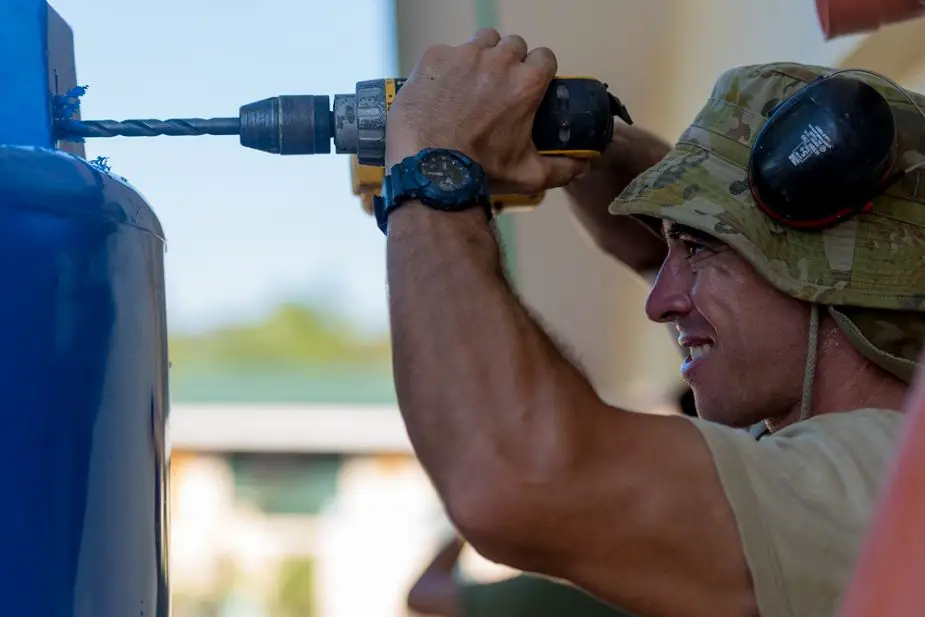Breaking news
Australian army contributes to humanitarian assistance during Balikatan 2018.
The Australian Defence Force’s (ADF) ability to effectively contribute to humanitarian assistance and disaster relief and security operations in South East Asia is again the focus of a major international military exercise in the Philippines code-named Balikatan 2018 that will be concluded on May 20, 2018.

Australian Army Sapper Tim Quirk drills a hole into a water collection tank during construction in support of Exercise Balikatan at Calangitan Elementary School in Capas, Tarlac, Philippines, May 10, 2018. (Picture source U.S. MoD)
Jointly hosted by the Armed Forces of the Philippines and US Pacific Command, Exercise Balikatan 18 is designed to enhance regional military cooperation, interoperability and the participating nations’ ability to respond effectively during times of disaster or humanitarian crisis.
Chief of Joint Operations, Vice Admiral David Johnston, said the ADF’s ongoing support to the annual exercise is another example of Australia’s commitment to regional security and stability.
“This exercise allows us to build on our already strong relationship with both the Armed Forces of the Philippines and the US military’s Pacific Command,” Vice Admiral Johnston said.
“The word Balikatan, translates as ‘shoulder to shoulder’ and that certainly characterises the spirit of this exercise.”
Balikatan 18 includes a command post exercise, a humanitarian and disaster relief program as well as a range of military training activities. The exercise involves approximately 60 ADF personnel, a Royal Australian Air Force P-3 Orion Maritime Patrol Aircraft and an Army contingent.
Vice Admiral Johnston said this was the 34th year Balikatan was staged and the fifth time the ADF was an active participant.
“The United States, the Philippines and Australia have a longstanding relationship dating back to WWII resulting in a significant, ongoing contribution to regional security,” Vice Admiral Johnston said.
“Our recent support operations following natural disasters in Fiji, Papua New Guinea and Tonga demonstrate that regional cooperation during times of natural disaster is more important than ever.


























